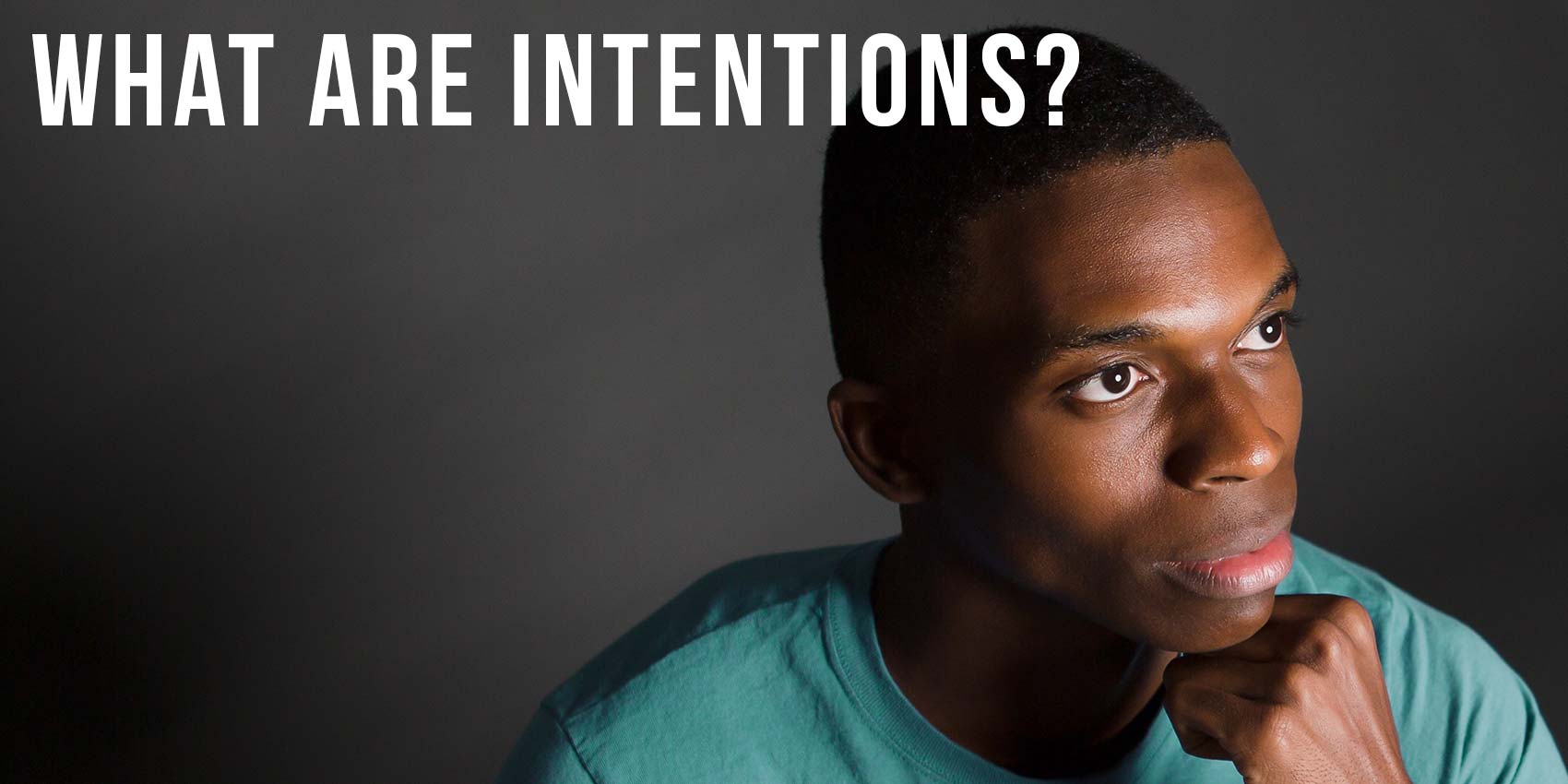15 Sep What are intentions

Intentions are the reasons behind why you act a certain way or make a certain decision—they are what you wanted to happen. Here are a few examples:
I invited everyone to my party. My intention was to make everyone feel included.
I told Shanice her dress was pretty. My intention was to make a connection with her because she seems sad. I also really did like her dress.
Intentions come from within you. This is why knowing who you are is such a huge part of making good decisions—decisions that feel good to you.
Knowing your intentions helps you to make the most of your decisions. For instance, if you were going for a bike ride, you could have several different intentions: to get exercise, to pick up items at the store, or to explore the area. These intentions would then impact the route you would take. If you wanted to get exercise, you might choose to go on a route involving hills and distance, whereas if you were going to the store, you might choose to take a short cut. If you wanted to explore the area, you might choose routes that you have never taken in the past. The best choice of bike routes would depend on your intentions.
Sometimes intentions are functional, like in the bike example above. But intentions can also sometimes be driven be whether or not you want to help or hurt a person. Let’s say Curtis comes to you with a question about your upcoming math test. Now, Curtis has been really mean to you in the past. He’s on your volleyball team and he’s alway pointing out how you make mistakes and even posted a video of you missing a spike the other day. But now he’s being all friendly and asks, “Hey man is the math test tomorrow on pages 7-10 or is it on pages 15-20?” If your intention is get back at Curtis, to hurt him, you might reply with “On pages 15-20” knowing full well that the test is on pages 7-11. If your intention is to help him, because you don’t want to be mean to anyone and you don’t like lying, then you tell him “7-11 actually.”
If you find that a lot of your intentions are aimed at hurting other people rather than helping them, you might want to slow down and think about why. You can always change your intentions, that’s entirely possible. But if you are really struggling with this and find that you often have intentions that are mean spirited, we suggest that you seek some help from a trusted source.
Most often though, people don’t start out with bad intentions, but without thinking about the consequences and the impact that their actions have on others, a well-intentioned action can have poor consequences. You can have the best of intentions: I want to celebrate her birthday! And yet, have an awful outcome: She hates surprises and was mortified when I gave her a surprise party. You can limit the possibility of having bad intentions by thinking about how your actions will affect other people. Please read the next post to learn more….

CHALLENGE: Give an example of a decision you need to make. List your intention, and then explain how describing your intention may or may not have changed your decision.




Post Question:
When you make a decision, do you consider your intentions?
Answer the post question here
What's being said